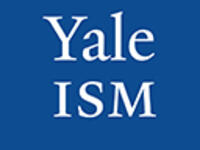
The Atonement and the Rhetoric of the Eucharistic Prayer
Part of the 2006-2007 Liturgy Symposium Series
ISM Great Hall - 409 Prospect Street, New Haven, CT
Refreshments for mind, body, and spirit will be served. Free and open to the public.
The Reverend James W. Farwell, Ph.D. is Associate Professor in the H. Boone Porter Chair of Liturgics at The General Theological Seminary. He is also an affiliate member of the doctoral faculty at Drew University and teaches at Hunter College/CUNY. He earned his Ph.D. in religion at Emory University. He is a member of the American Academy of Religion, the North American Academy of Liturgy, and the Society for Buddhist-Christian Studies.
Dr. Farwell’s publications include This Is the Night (T and T Clark International, 2005) a counter-modern interpretation of suffering rooted in the liturgies of the Paschal Triduum. His current interests include the implications of trauma theory for liturgical memory; the significance of the philosophical critique of metaphysics for sacramental theology; and the relationship between ritual, ethics, and belief.
The doctrine of substitutionary atonement that dominates Christian soteriology in the West has come increasingly under criticism since the mid 20th century. Black theologians, feminist theologians and many others have raised theological and moral questions about the idea of salvation from sin wrought by the death of an innocent – questions that have taken a new turn with the recent interest in Rene Girard’s theory of scapegoating and its role in the origin of human culture.
This presentation will begin with a brief overview of the critique of western Christian soteriology embodied in these questions. With that critique in mind, we shall examine the soteriological language of various classical and modern eucharistic prayers and revisit the connection in those prayers between substitutionary atonement for sin and the idea of Christ’s sacrificial death. Ultimately, we will ponder the significance of certain contemporary eucharistic prayers that appear to make subtle but significant referential changes in the construal of sacrifice – changes at once in continuity with some classical eucharistic prayers and with principal themes in 20th century Christian theology. Along the way, we will consider the role and limits of anaphoral language and imagery in the formation of the Christian theological imagination.